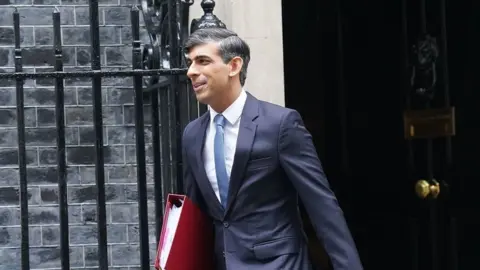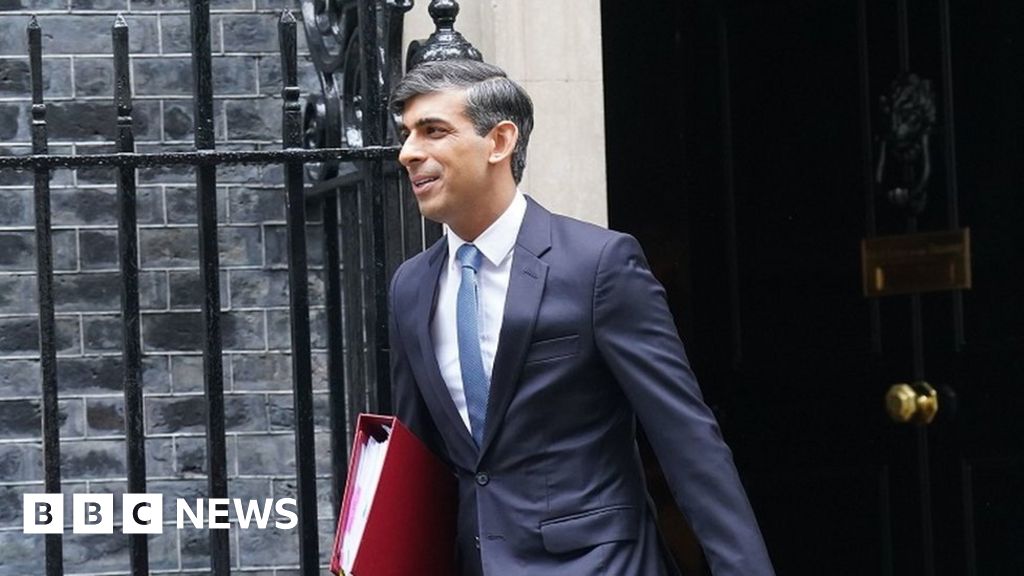By Chris Mason,Political editor, BBC News
 PA Media
PA MediaCivil servants, advisers, MPs, you name it – there is, not for the first time this year, a swirl of chat within government and beyond that the prime minister might be about to call a general election, or at least have something to say about it.
Cards on the table: I am usually not that excitable about this kind of stuff, because it is usually quickly debunked.
This time, at least as I write this, it feels different.
Since yesterday , I have been seeking a straight answer to whether Rishi Sunak is about to call an election and no straight answer has come.
Calls that are normally returned haven’t been.
It’s not a complete wall of silence, but the only question that matters isn’t being directly addressed.
Mr Sunak appeared briefly in front of a camera this morning to welcome the fall in inflation, but stuck to his formulation that the general election would be in the second half of the year.
And at Prime Minister’s Questions, a combination of the return to Parliament of Tory MP Craig Mackinlay and a discussion about the infected blood scandal gave the exchanges a far more consensual feel than usual.
It took Stephen Flynn, the SNP’s Westminster leader, to address it head on.
Downing Street know the swirl of chat that is, well, swirling.
And Rishi Sunak’s answer will do nothing to ease that swirl, even though he merely said again what he has been saying repeatedly for the last six months.
For around half an hour, the prime minister’s team have taken questions from reporters, as is standard on a Wednesday after PMQs.
While sticking to their long standing formulation about an election in the second half of the year, they again did nothing to knock down all the speculation.
I am told senior civil servants who spend their days in regular conversations with Downing Street and the heart of government are encountering a wall of silence from those they normally deal with.
A senior Conservative figure who is standing down at the election just hugged one of my colleagues goodbye.
In other words, all the building blocks of choreography and behaviour you would expect on the day a general election is called are taking shape.
It is worth saying that each and every one of them has an individually plausible alternative explanation.
But the sum total of all of them becomes very difficult to explain away if an election isn’t either imminent or the prime minister isn’t about to say something about when it will happen.
The thing with Westminster is to check out a rumour you have to spread it, so a rumour becomes endemic in the tilt of a ear, the blink of an eye.
But they can be squashed in an instant.

